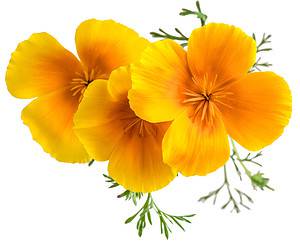Flowers as an unspoken language is not a modern concept. Instead, for centuries, flowers have been used to symbolize messages and emotions worldwide. Some meanings are more well-known, such as the red rose’s demonstration of romance. Other flower meanings may not be as familiar, however. In this guide, learn more about 5 different flowers representing and saying “goodbye.”
Some of the flowers listed, such as the cyclamen, explicitly mean farewell. For many other types of flowers, however, the meanings are instead related to saying good-bye, helping convey a similar message rich with many emotions.
Ready to learn more about the flowers that represent and say “goodbye”? Keep reading!
Cyclamen
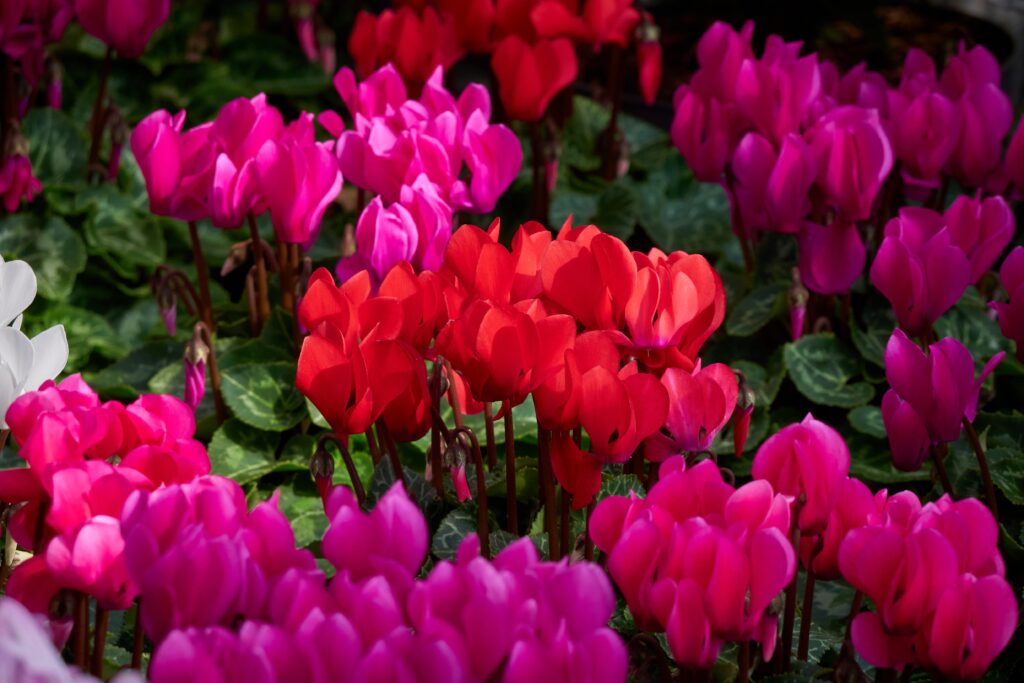
Cyclamens are one of the number one flowers that represent and say “goodbye.”
©Adrian Eugen Ciobaniuc/Shutterstock.com
When it comes to flowers that represent farewells, the cyclamen is one of the most common. Cyclamens represent lasting feelings and emotions such as love and affection. Because of this, they can be a great flower to gift to a dear friend, coworker, or loved one. Many people may opt to offer cyclamens for more permanent farewells, such as when a close friend moves away or when a coworker retires.
There are 23 different species of cyclamen, coming in various colors. Its name comes from the Ancient Greek word for “circle,” which describes this plant’s round tubers.
If eaten by mistake, cyclamens are toxic. If gifting this plant to someone else or bringing it into your home, ensure this is a safe choice. This means considering any small children or pets in the home that may accidentally ingest any part of this flower.
Sweet Pea
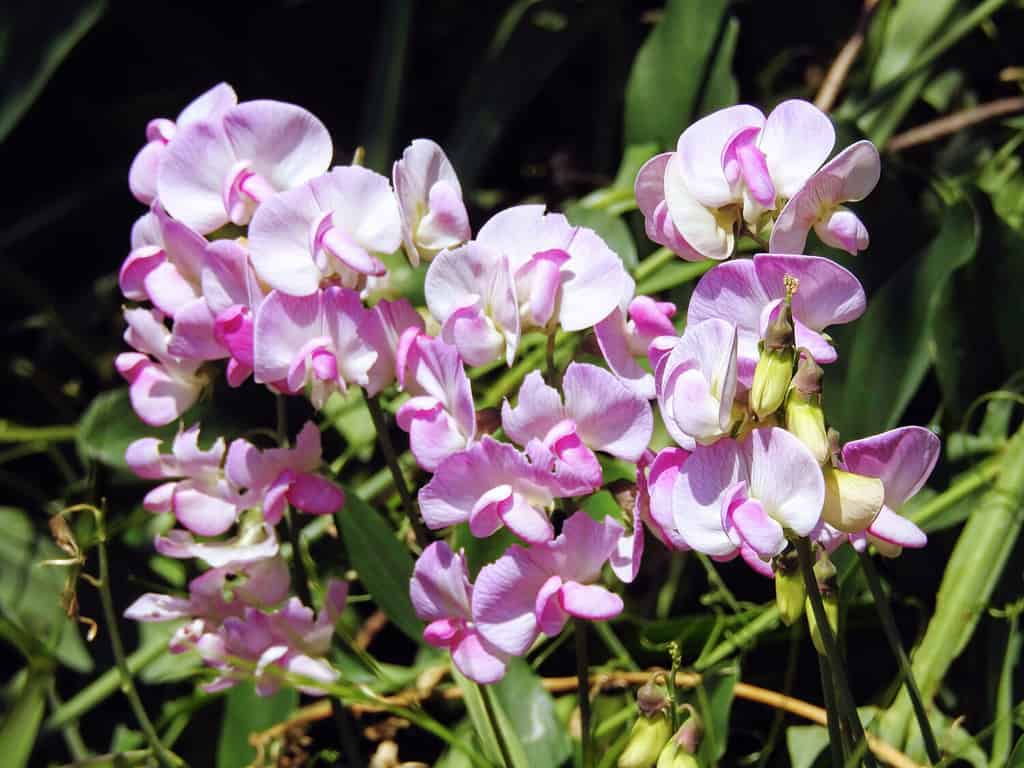
Sweet pea flowers symbolize goodbye, good wishes, and gratitude.
©Dana.S/Shutterstock.com
The sweet pea is a beautiful, vivid flower that represents friendship. It is most often used as a heartfelt farewell between friends and loved ones. However, this flower conveys several other related messages as well, including gratitude (specifically for an enjoyable time spent together) and good wishes.
Sweet peas (Lathyrus odoratus) are an annual flower native to Italy, Sicily, and the Aegean Islands. When the right support is available, this flower can grow to be nearly 7 feet tall. They can come in various flowers, from white to pink to red. Purple and blue flowers are also common. One of the most popular aspects of the sweet pea is its strong, pleasant scent.
Although the sweet pea is a type of pea, it is not edible. In fact, this plant can be highly toxic, just like the cyclamen.
Basil
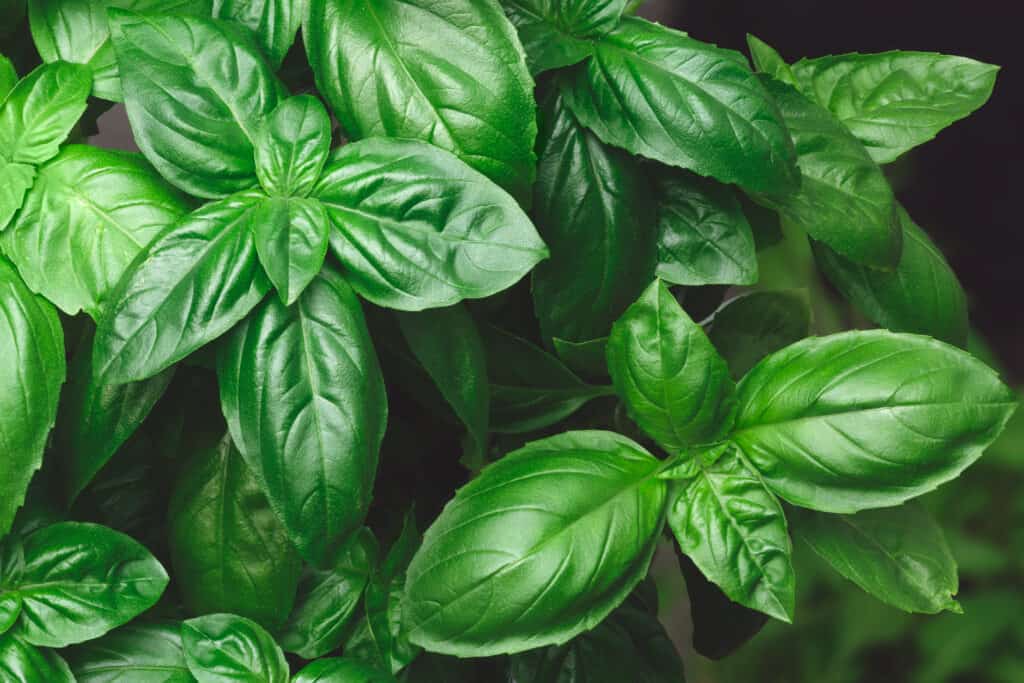
Basil flowers mean “well wishes,” but this meaning can vary depending on location.
©Hortimages/Shutterstock.com
When you first think of basil, you likely think of the plant used to provide your dishes with a sweet, unique flavor. However, did you know that, if left unpruned, basil can produce flowers? Although basil flowers may result in a less-than-preferred taste as an herb, they can be a great way to say farewell to a departing friend. This is because many countries view these little flowers as meaning “well wishes.”
However, be warned, this is not the case for all cultures! In some parts of the world, basil flowers may provide the recipient with a much different message. For instance, in Greece, basil flowers may convey “hatred.” With all flowers used to demonstrate or relay a message, it’s important to understand the symbolism may vary depending on the region. As a result, if gifting to someone of a different background, you may wish to conduct further research before saying “goodbye” to a certain flower.
Basil is non-toxic if ingested by humans, cats, and dogs. It is also safe for other small, common household pets. As a result, if you’re looking for a safe, non-toxic way to say goodbye to flowers, basil may be a top choice.
Forget-Me-Not
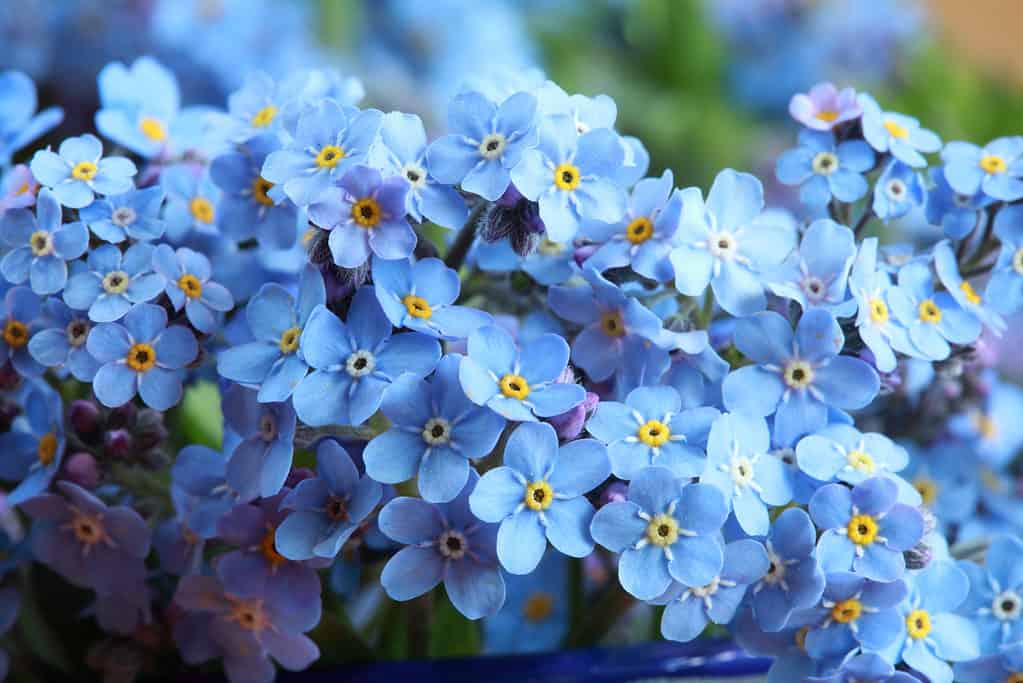
Forget-me-nots have many meanings, including remembrance.
©Shulevskyy Volodymyr/Shutterstock.com
Traditionally, the forget-me-not symbolizes remembrance with its beautiful light blue color. Today, it is associated with many other meanings, such as royalty or Alaska. Despite this, its original meaning, plus its name, helps say farewell to those you are close to. For many, to give someone this flower is quite literally to ask them not to forget you!
Forget-me-not flowers have a low toxicity but are considered to be poisonous. However, because of their low toxicity, these may be a safer choice for saying farewell through flowers than other more toxic flowers that represent and say “goodbye.”
Zinnia

With their colorful appearance, zinnias can make a wonderful farewell gift.
©Ronnakorn Chaiyasaengcharoen/iStock / Getty Images Plus via Getty Images
Zinnias are a common cut flower choice, featuring beautiful blooms in various colors. Along with meaning remembrance, like the forget-me-not, zinnias are associated with friendship and lasting affection. As a result, they can make a perfect gift for a loved one or friend moving away.
The zinnia is often considered to be a pet-friendly flower option.
The photo featured at the top of this post is © iStock.com/Agnieszka Klimaszewska
Thank you for reading! Have some feedback for us? Contact the AZ Animals editorial team.





